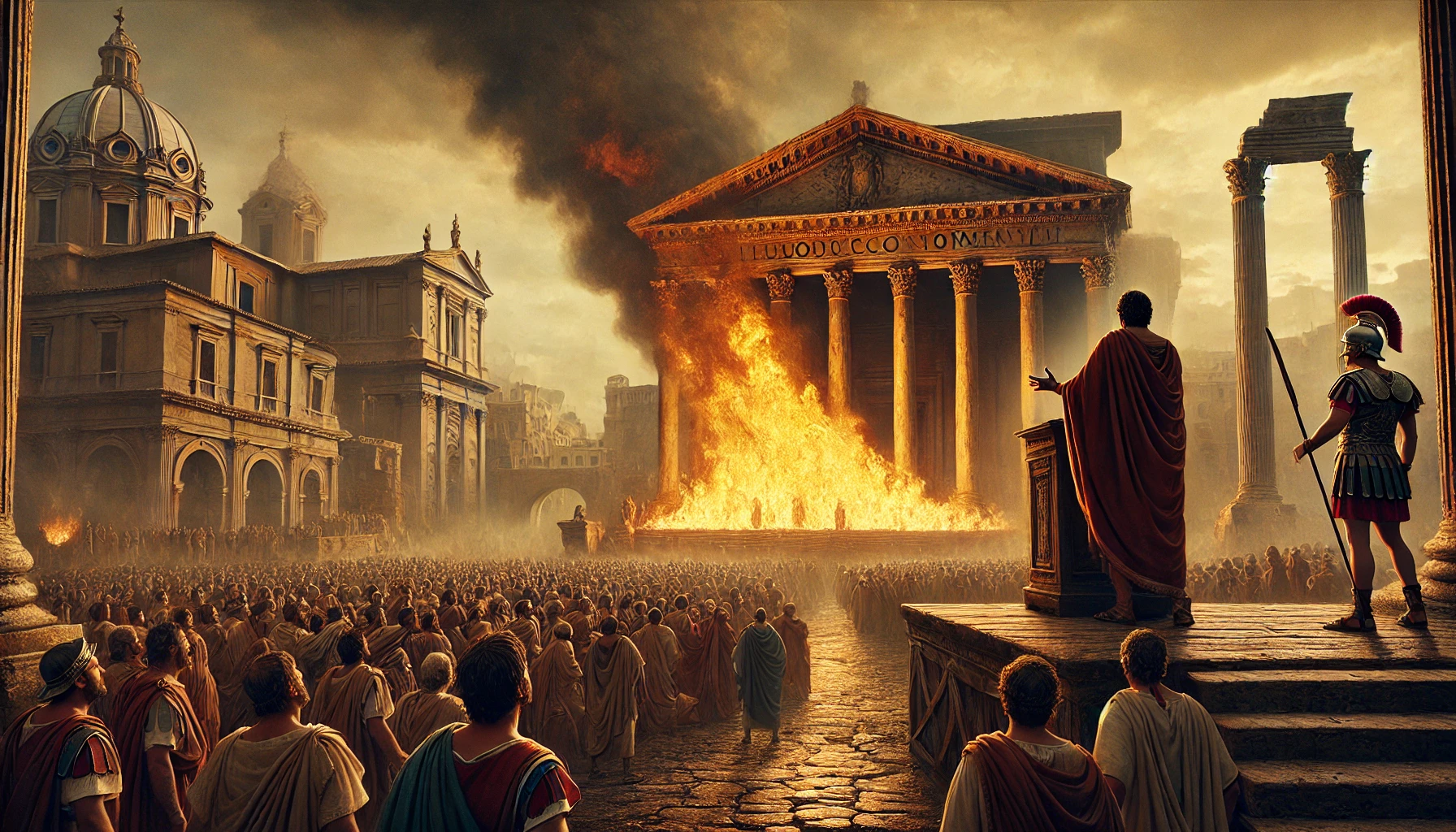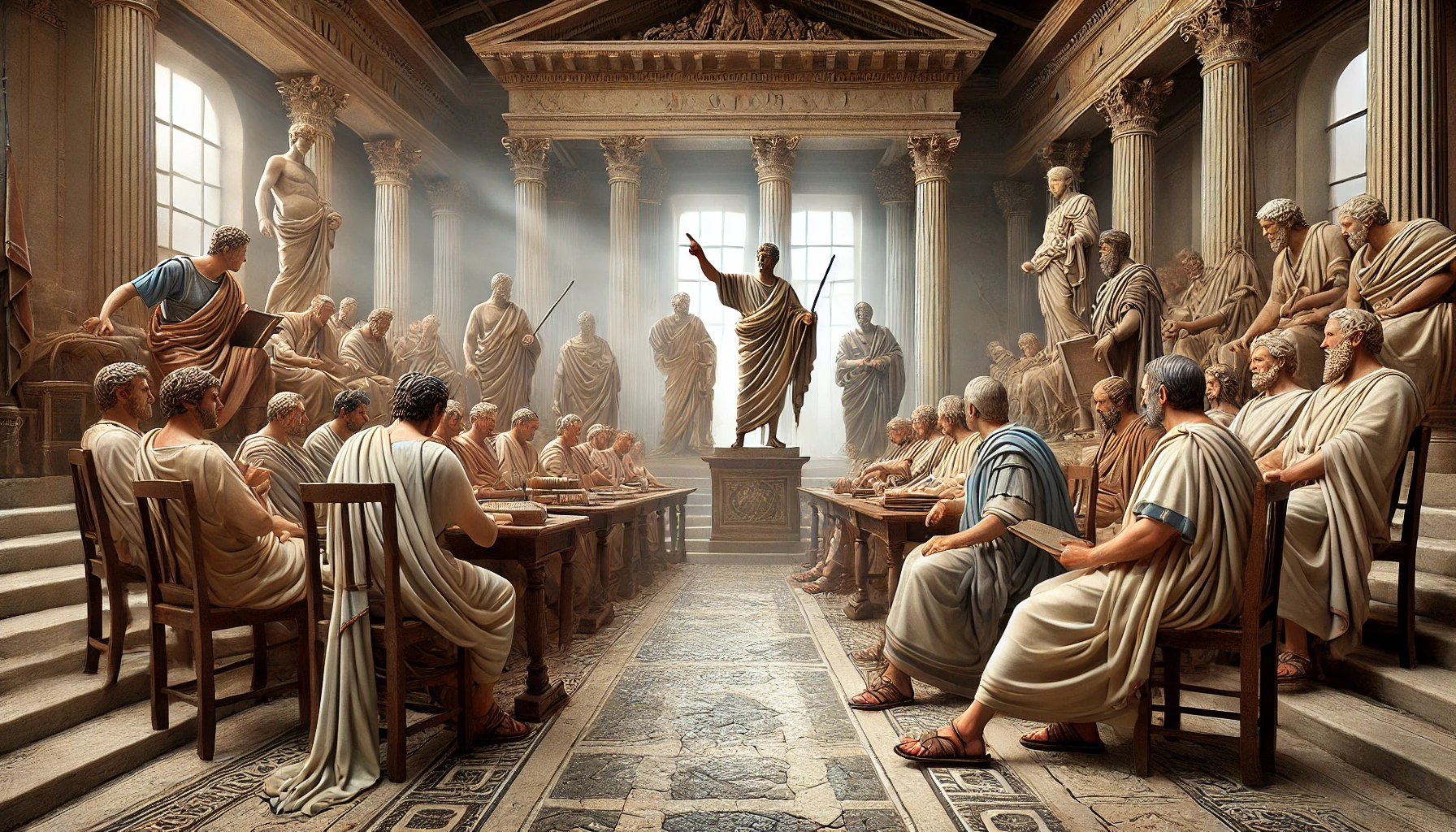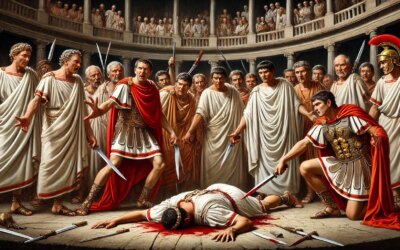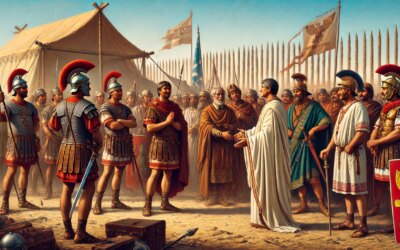A Rome in Mourning
On March 20, 44 BCE, Rome gathered to bid farewell to Julius Caesar. Just days earlier, he had been assassinated by senators who claimed to be saving the Republic. As his body lay on a grand funeral pyre in the Roman Forum, the city stood divided between grief and uncertainty.
Marc Antony’s Defining Moment
Marc Antony, a close ally of Caesar, seized the opportunity to address the Roman people. Standing before the crowd, he delivered a eulogy that would become one of the most famous speeches in history. With calculated rhetoric, he initially appeared to side with the conspirators, only to gradually turn public sentiment against them.
“Friends, Romans, Countrymen…”
Antony’s speech, immortalized by Shakespeare, played on the emotions of the audience. He presented Caesar not as a tyrant but as a leader who had cared for the Roman people. When he dramatically revealed Caesar’s bloodstained toga and his will—leaving money and land to the citizens—outrage erupted.
The City in Flames
As Antony spoke, the crowd’s anger turned into fury. Riots broke out, and Caesar’s funeral pyre became a symbol of vengeance. The homes of the assassins, including Brutus and Cassius, were attacked, forcing them to flee Rome.
The Beginning of the End for the Republic
The funeral of Julius Caesar was not just a farewell; it was the spark that ignited a civil war. In the years that followed, Antony, Octavian (later Augustus), and their forces would battle for control of Rome, leading to the fall of the Republic and the rise of the Roman Empire.
The Speech That Changed History
Marc Antony’s words on that day shaped the destiny of Rome. What began as a funeral became a turning point in world history, proving that in the right hands, oratory could be as powerful as the sword.






